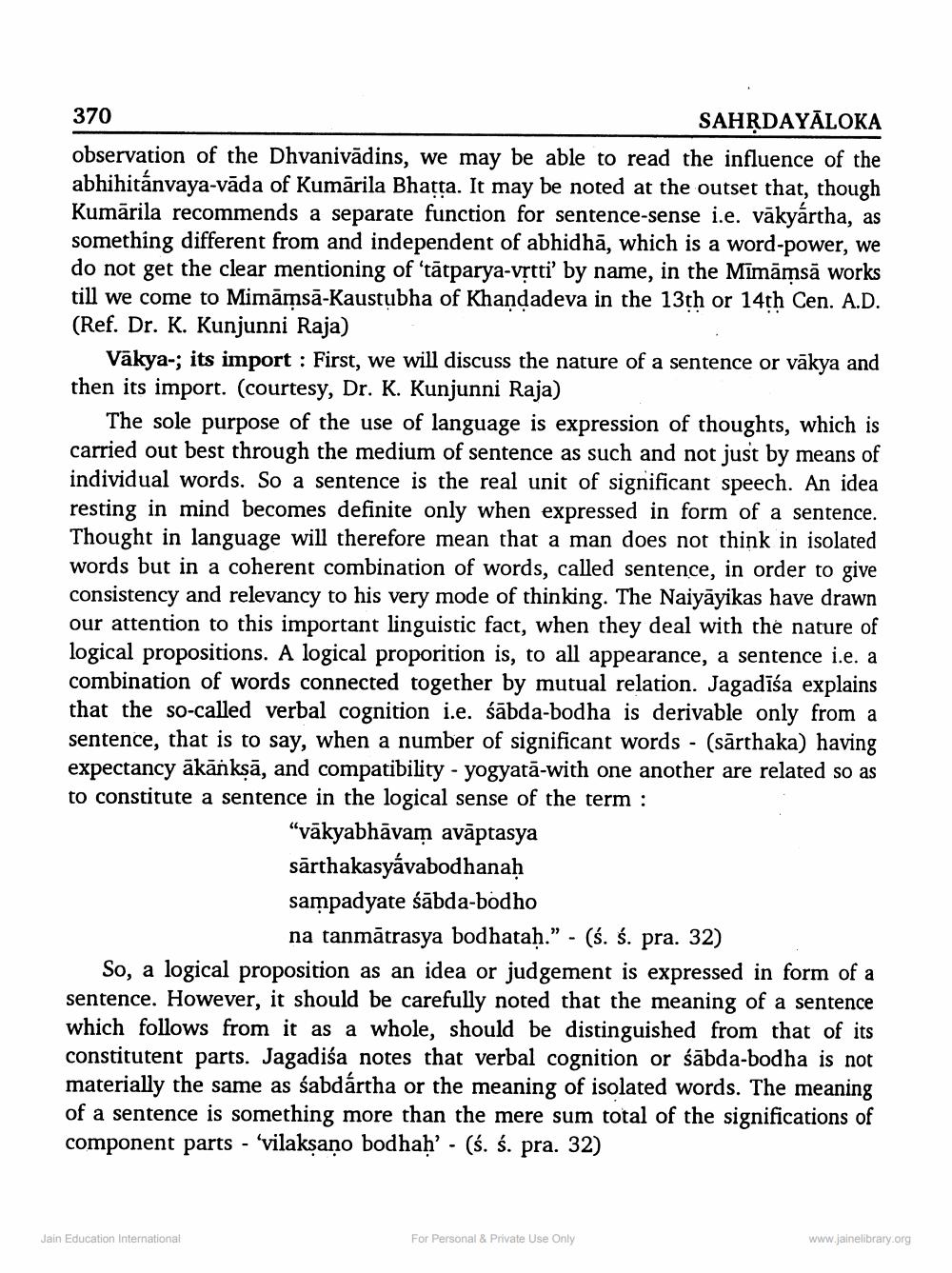________________
370
SAHRDAYĀLOKA observation of the Dhvanivādins, we may be able to read the influence of the abhihitánvaya-vāda of Kumārila Bhatta. It may be noted at the outset that, though Kumārila recommends a separate function for sentence-sense i.e. vākyártha, as something different from and independent of abhidhā, which is a word-power, we do not get the clear mentioning of 'tātparya-vstti' by name, in the Mīmāmsā works till we come to Mimāmsā-Kaustubha of Khandadeva in the 13th or 14th Cen. A.D. (Ref. Dr. K. Kunjunni Raja)
Vākya-; its import : First, we will discuss the nature of a sentence or vākya and then its import. (courtesy, Dr. K. Kunjunni Raja)
The sole purpose of the use of language is expression of thoughts, which is carried out best through the medium of sentence as such and not just by means of individual words. So a sentence is the real unit of significant speech. An idea resting in mind becomes definite only when expressed in form of a sentence. Thought in language will therefore mean that a man does not think in isolated words but in a coherent combination of words, called sentence, in order to give consistency and relevancy to his very mode of thinking. The Naiyāyikas have drawn our attention to this important linguistic fact, when they deal with the nature of logical propositions. A logical proporition is, to all appearance, a sentence i.e. a combination of words connected together by mutual relation. Jagadīša explains that the so-called verbal cognition i.e. śābda-bodha is derivable only from a sentence, that is to say, when a number of significant words - (sārthaka) having expectancy akānksā, and compatibility - yogyatā-with one another are related so as to constitute a sentence in the logical sense of the term :
“vākyabhāvam avāptasya sārthakasyávabodhanaḥ sampadyate śābda-bodho
na tanmātrasya bodhataḥ.” - (ś. ś. pra. 32) So, a logical proposition as an idea or judgement is expressed in form of a sentence. However, it should be carefully noted that the meaning of a sentence which follows from it as a whole, should be distinguished from that of its constitutent parts. Jagadisa notes that verbal cognition or sābda-bodha is not materially the same as sabdártha or the meaning of isolated words. The meaning of a sentence is something more than the mere sum total of the significations of component parts - 'vilaksaņo bodhaḥ’ - (ś. ś. pra. 32)
Jain Education International
For Personal & Private Use Only
www.jainelibrary.org




